Cost: £400
Book a place
Overview
This intensive two-day clinical ultrasound course introduces clinicians to the use of ultrasound for assessment of liver disease. It will provide hands-on experience of ultrasound, along with the essential accompanying theory sessions.
You'll be taught at London's Royal Free Hospital by experts in clinical ultrasound who will mentor you in recognising normal anatomy and pathological features.
The training will help you develop a more integrated clinical approach to hepatology.
The course aims to introduce the use of ultrasound with three main objectives:
- to review the most important topics in hepatology through a different perspective, broadening hepatology physicians knowledge
- to propose a rapid and practical approach for assessing patients with liver disease
- to introduce the use of ultrasound-based known and emerging techniques which are recognised as essential tools in the assessment of chronic liver disease
This course is run by UCL's Division of Medicine. It's approved by the Royal College of Physicians (RCP) for 12 CPD points.
Who this course is for
This CPD course is aimed mainly at hepatologists in training and hepatology consultants, from the UK or overseas.
The practical nature of the training means that there are only 20 places, so each participant will have time to gain hands-on experience.
There will be a waiting list once the course is full.
Eligibility
UK participants must have General Medical Council (GMC) registration.
You should have considerable clinical experience in hepatology.
We encourage the participation of hepatology registrars who have access to an ultrasound machine in their place of work. This will be important in developing and maintaining the practical skills acquired.
Content and structure
You'll learn through a mixture of lectures and practical sessions.
During the first part of the course there will be:
- lectures on normal abdominal anatomy and its sonographic equivalent, followed by practical sessions in which you'll be taught how to recognise and describe the relative findings
- the opportunity to gain confidence with the technical aspects of ultrasound during the practical sessions
The second part of the course will be dedicated to lectures on different liver disease pathologies. This will be followed by practical sessions during which you'll be guided by your assigned mentor to familiarise yourself with the different sonographic features of liver disease.
There will be also space for discussion on what hepatology physicians should know about ultrasound-based interventional techniques, as well as the latest advances and their potential applications with projection of pictures and clips.
You'll finish by taking part in an interactive clinical case discussion after which you'll complete a questionnaire to evaluate your knowledge and achievements.
Learning outcomes
By the end of this course you should be able to:
- review and further understand the clinical approach to non-invasive assessment of liver disease
- understand how to use an ultrasound machine in the context of different clinical scenarios of patients with liver disease
- develop an integrated approach to clinical management in order to improve patients' care
- develop interest in a particular area of clinical research
Why you should attend
UCL's Institute for Liver and Digestive Health is one of the best referrals centres in UK. It's an example of clinical excellence and is one of the main centres of basic and translational research.
Many centres in Europe (Germany, France, Spain, Italy, Romania) use clinical ultrasound in their general practice (as well as in different specialities). There is evidence that this clinical approach improves patient care and increases the possibilities of clinical research. Expanding this area in UK will enable further networking across centres not only within UK but also internationally.
Benefits to your employer
Although this is an introductory course, the theory and practical sessions will provide the necessary clinical knowledge to improve patient care by giving participants a better understanding and a more focused and rapid assessment of patients with liver disease. This can speed up the time of diagnosis, the appropriateness of referrals and the development of local research.
Cost
The standard price is £400.
A reduced fee of £300 is available for SPRs and clinical fellows.
Course team
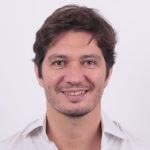
Dr Matteo Rosselli
Matteo is a consultant physician in internal medicine with a specific interest in hepatology, portal hypertension, autoimmune and cholestatic liver disease, vascular liver diseases, hepatocellular carcinoma. He trained in Internal Medicine and Hepatology at Florence Medical University integrating his clinical practice with ultrasound and developing a personal and practical approach to clinical medicine especially in the area of hepatology, acute medicine and the management of the critically ill patient. He undertook a PhD on non-invasive assessment of liver fibrosis and portal hypertension and worked from 2013 to 2017 at the Institute for Liver and Digestive Health, University College London, Royal Free Hospital. He is founder, director and organiser of the UCL International Hepatology Ultrasound Course, in London. He is Editor and Author of the book ‘Liver Ultrasound: from basics to advanced techniques’. His clinical work is based in the High Complexity Unit of the Hospital of San Giuseppe, Empoli (Florence, Italy), and holds a position of Honorary Associate Professor at the Division of Medicine, UCL, Institute For Liver and Digestive Health (London, UK). He is a renown expert in non-invasive assessment of liver disease having lectured at international conferences worldwide such as EASL, Liver London Group, BSG, COLDA, UEG, WFUMB and Euroson.
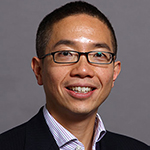
Professor Adrian Lim
Adrian has been a Consultant Radiologist since 2003 at Imperial College Healthcare NHS Trust, and Chief of Ultrasound at Charing Cross Hospital. He has a specific interest in oncological, breast, MSK imaging and contrast-enhanced ultrasound (hepatic and extrahepatic applications). He has been a reader at Imperial College London since 2010 and adjunct Professor of Radiology since 2013.
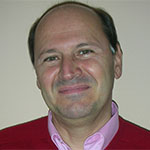
Prof Ioan Sporea
Ioan is Head of the Gastroenterology and Hepatology Department in Timisoara, Romania. He's an internationally recognised expert in clinical ultrasound and is one of the leading authorities who has taken part to the latest EFSUMB guidelines on liver elastography. His department was nominated in 2007 as one of the few Training Centres of Reference of the World Federation of Ultrasound in Medicine and Biology (WFUMB).
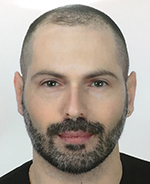
Dr Davide Roccarina
Davide is a specialist in General Internal Medicine at the Royal Free Hospital. He has a specific interest in hepatology, clinical ultrasound and non-invasive assessment of liver disease.
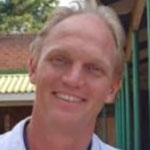
Dr Tom Heller
Tom has worked for more than 20 years in various international settings in the field of Internal Medicine and Infectious Diseases. Since January 2019 he’s worked in the gastroenterology department in Bad Toelz, Germany. He’s particular interested in diagnostic and interventional ultrasound. His research and teaching interests are ultrasound applications in the resource-limited setting and sonographic diagnosis and treatment of infectious diseases. He developed a protocol called (FASH) Focused assessment with Sonography for HIV/TB. This protocol focuses on using ultrasound to diagnose HIV-associated tuberculosis. Tom has also taught ultrasound in various countries in Africa, Asia and South America as well as on the course in tropical ultrasound annually held in Pavia, Italy.
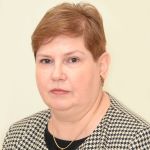
Prof Alina Popescu
Aline is Professor of Gastroenterology and Hepatology at the “Victor Babeș” University of Medicine and Pharmacy Timișoara, PhD in Gastroenterology, Head of the Department of Gastroenterology and Hepatology of the “Pius Brânzeu” Emergency County Clinical Hospital Timișoara, senior attendant of Gastroenterology and Internal Medicine, an expert in general ultrasonography according to the multilevel classification of SRUMB. She is the Treasurer of EFSUMB (European Federation of Societies for Ultrasound in Medicine and Biology). She was President of the Romanian Society of Ultrasound in Medicine and Biology (SRUMB) for 2020-2022, former member of the Education and Professional Standards Committee of EFSUMB and of the World Federation of Ultrasound in Medicine and Biology (WFUMB) Student Education Committee. She is the Secretary of the WFUMB Center of Education (COE) Timișoara and co-director of the EFSUMB Ultrasound Learning Center Timișoara. Her scientific achievements are materialized in more than 160 papers published in medical journals.
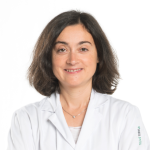
Prof Annalisa Berzigotti
Annalisa is Head of Hepatology at the Department of Visceral Surgery and Medicine of Inselspital, Bern University Hospital, and Professor of Clinical Hepatology at the University of Bern, Switzerland. She is expert in non-invasive assessment of liver disease, and chaired the panel developing the EASL clinical practice guidelines in this topic. She has a specific interest in clinical ultrasound in hepatology, particularly in the field of cirrhotic and non-cirrhotic portal hypertension.

Dr Gayathri Angela Yogarajah
Gayathri is a Consultant Radiologist at Royal Free Hospital, having completed her core radiology training throughout district general hospitals in Surrey (KSS training scheme) and higher subspeciality training in Hepatobiliary Radiology and Non-Vascular Intervention at King's College Hospital. Her main areas of interest are in diagnostic hepatopancreaticobiliary radiology and liver tumour ablation.

Dr Giovanna Ferraioli
Giovanna is a researcher at Department of Clinical, Surgical, Diagnostic and Pediatric Sciences, University of Pavia, (Italy). She is member of the Education Committee of the World Federation for Ultrasound in Medicine and Biology (WFUMB) and Chair of the WFUMB Steering Committee for “Multiparametric Ultrasound: Update to WFUMB 2018 elastography guidelines and consensus on fat quantification”. She is co-chair of the attenuation working group of the AIUM-RSNA QIBA Pulse Echo Quantitative Ultrasound (PEQUS) Biomarker Committee and member of the ACR LIRADS Quantitative Imaging Work Group. She is head of the ultrasound section of the Scientific Editorial Board of European Radiology; subspecialty Editor of Journal of Ultrasound in Medicine, and member of the Editorial Board of World Journal of Gastroenterology, Ultrasound in Medicine and Biology, Diagnostics, Journal of Ultrasound. She is the co-director of the EFSUMB Ultrasound Learning Center (ULC) at the Medical School of the University of Pavia (Italy). Dr Ferraioli has delivered lectures worldwide. She has substantially contributed to guidelines on liver shear wave elastography and position paper on liver fat quantification with US-based algorithms.

Annamaria Deganello
Annamaria is a Consultant Radiologist in the Department of Radiology at King’s College Hospital, London, and an Honorary Senior Lecturer at King’s College London University. She qualified in 2004 from the Faculty of Medicine and Surgery of the University of Padova (Italy), and, after qualifying as Radiologist in Padova in 2009, she subspecialised in Paediatric Radiology at King’s College Hospital in London, where she holds a permanent position since 2013. Dr Deganello has a special interest in the imaging of adult and paediatric hepatobiliary diseases and liver transplantation, Contrast Enhanced Ultrasound, imaging of trauma and ultrasound guided procedures. She is the author and co-author of over 50 peer-reviewed publications and book chapters, a reviewer for many scientific journals and she is a member of the British Medical Ultrasound Society Education Committee; she was recently appointed member of the European Society of Radiology Ultrasound Quality and Standard Committee. She is a member of numerous Scientific Societies and has been an invited lecturer for her expertise at over 60 national and international congresses.
Book a place
Course information last modified: 10 Apr 2024, 11:20
 Close
Close

